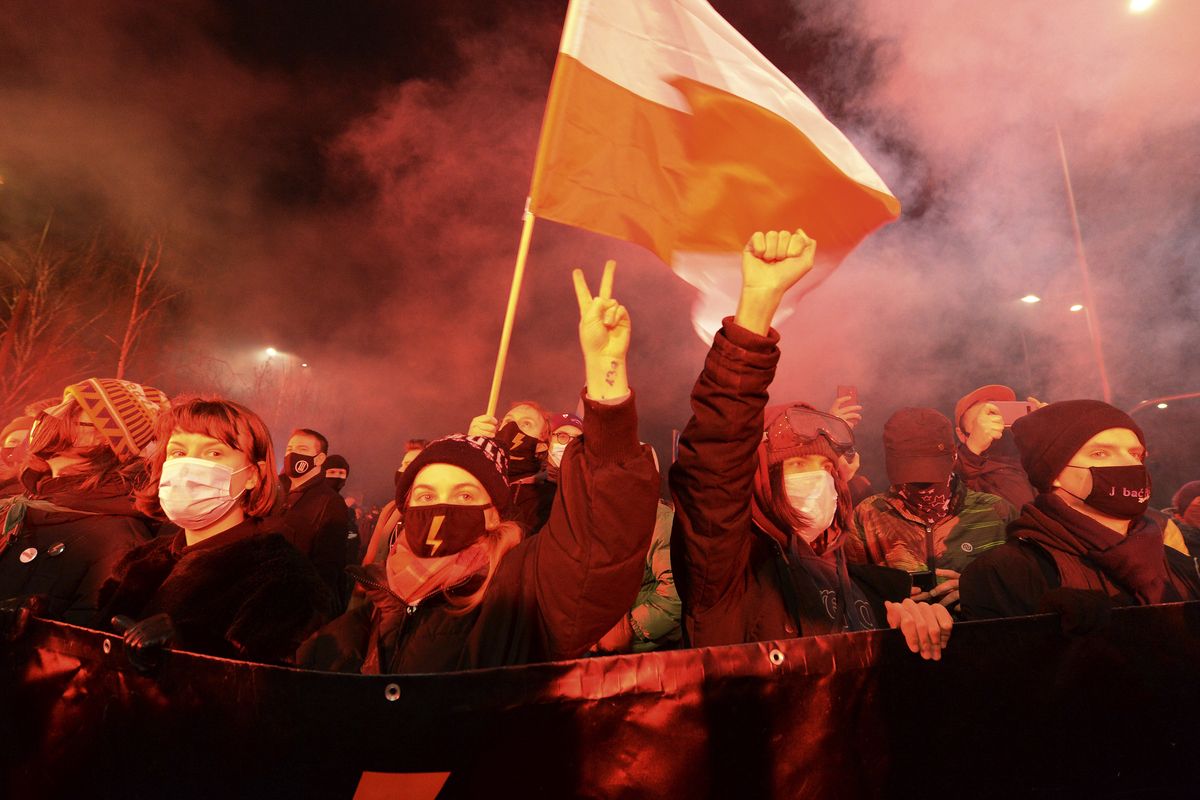Poland: Near-total abortion ban takes effect amid protests

WARSAW, Poland — A near-total ban on abortion has taken effect in Poland and triggered a new round of nationwide protests three months after a top court ruled that the abortion of congenitally damaged fetuses is unconstitutional.
Led by a women’s rights group, Women’s Strike, people poured onto the streets of Warsaw and other cities and towns on Thursday for the second evening in a row.
“I wanted to have more children, you killed this desire,” read a banner held by one woman among the demonstrators in Warsaw. Some Polish women said that if they are denied the right to terminate pregnancies in cases of badly deformed fetuses, they would not try to have children at all.
Poland’s top human rights official denounced the further restriction of what was already one of the most restrictive abortion laws in Europe, calling it a tragedy for women.
“The state wants to further limit their rights, risk their lives, and condemn them to torture,” said Adam Bodnar, the human rights commissioner, or ombudsman, whose role is independent from the Polish government. “This offensive is opposed by civil society.”
The only remaining legal justifications for abortion under Polish law are if the woman’s life or health is at risk or if a pregnancy results from rape or incest. To date, about 98% of all legal abortions in the country — of which there were 1,110 in 2019 — were performed on the grounds of fetal malformations.
The restriction of abortion comes amid a broader erosion of civil liberties under right-wing populist authorities in Poland, as well as Hungary. The erosion of democratic rights in the two nations also is spreading to other parts of ex-communist central Europe, presenting a challenge for the European Union and U.S. President Joe Biden as he seeks to restore democratic norms at home and abroad.
Poland’s constitutional court on Wednesday issued a justification of a controversial October ruling that bans abortions in cases of fetuses with congenital defects, even ones so severe that there is no chance of survival upon birth. The government then published the court’s ruling in a government Journal of Laws. Those steps were the formal prerequisites required for the new law to enter into force.
Members of Poland’s ruling Law and Justice party, which is aligned with the Roman Catholic Church, had sought the new restriction. They argued that it was a way to prevent the abortion of fetuses with Down syndrome, which have made up a significant share of the legal abortions in Poland.
Women’s rights activists consider the new law to be draconian.
The protesters are demanding a full liberalization of the abortion law and the resignation of the government, neither of which seem likely in the short term.
In the meantime, women’s rights groups are seeking new strategies to help women. The Federation for Women and Family planning says it will seek redress in international courts, arguing that the new law violates prohibitions of cruel treatment and torture. It is also assisting women who want to obtain abortion pills or travel abroad for the procedure.
Some protesters Wednesday covered their faces with green handkerchiefs, which are the symbol of the abortion rights movement in Argentina. The South American country recently legalized abortion, a historic change in deeply Catholic Latin America.
Amnesty International, calling Poland’s law taking effect “a terrible day for women and girls in Poland,” said bans never prevent abortions.
“Instead, they serve only to damage women’s health by pushing abortions underground or forcing women to travel to foreign countries to access abortion care they need and to which they have a right,” Amnesty senior research adviser Esther Major said.
In a more than 200-page ruling, the constitutional court argued that allowing abortion when there are congenital defects is unconstitutional because the Polish Constitution protects human life.
The constitutional court is made up mostly of Law and Justice appointees who ruled on a motion brought by lawmakers from the party.